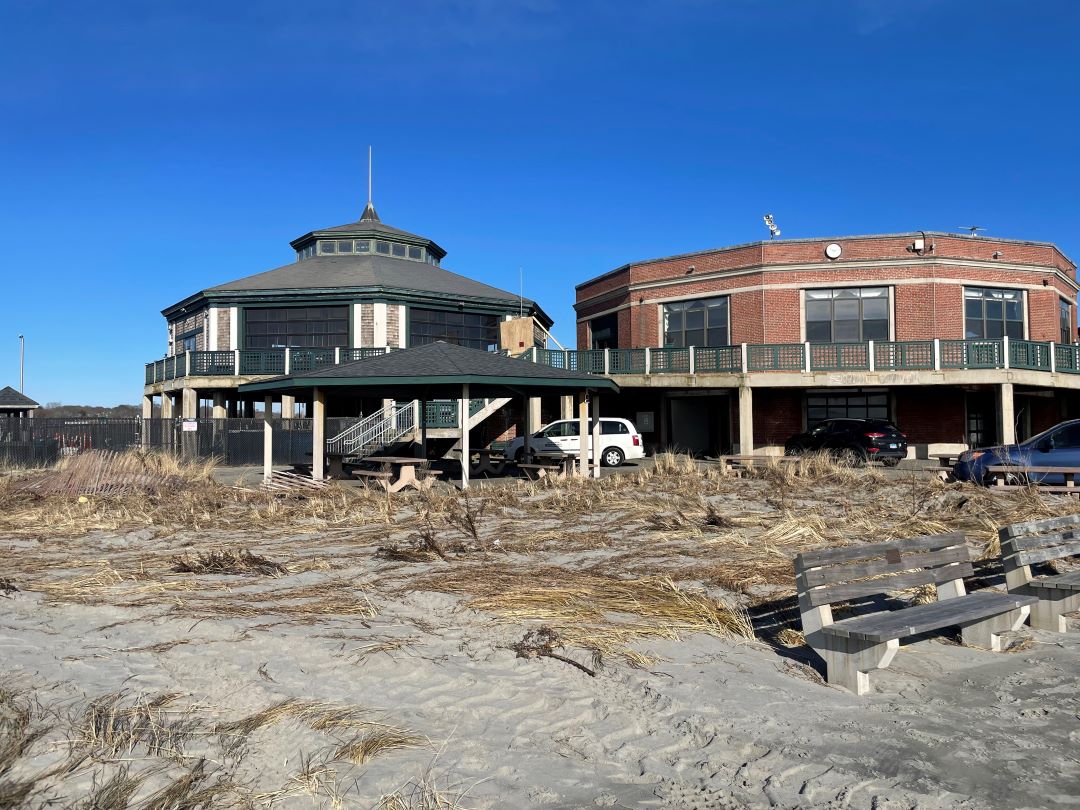Gov. Chafee Creates Climate Change Council
February 22, 2014
WEST WARWICK, R.I. — A new statewide board is taking on climate change in Rhode Island. Will it succeed where other efforts for comprehensive action have stalled?
Surrounded by elected officials and state environmental leaders, Gov. Lincoln Chafee signed an executive order Feb. 21 establishing the Rhode Island Executive Climate Change Council (ECCC), a committee representing nine state agencies. The new committee is directed to develop policies and legislation that address the two main climate-change challenges: adapting to its impacts, and reducing, or mitigating, carbon dioxide emissions.
The ECCC is the second statewide board to confront climate change. In 2010, the General Assembly created the Climate Change Commission in partnership with the Brown University Center for Environmental Studies. The 29-member board consists of elected officials and local environmental leaders. Due to a lack of funding, the committee meets infrequently and issued only one report, in 2012.
The governor said inaction by Congress pushed him to create this new commission. “It’s unfortunate we have to make these decisions state by state, rather than federally,” Chafee said. “I would have preferred that the national federal government had acted. That’s not occurring. There’s still the deniers out there about climate change.”
Kate Brock, Chafee’s legislative liaison, said the Climate Change Commission will serve in an advisory role to the new executive council.
Members of the Climate Change Commission who attended the recent announcement weren’t aware of their added responsibility. After hearing Brock’s comment, J. Timmons Roberts, professor of environmental studies and sociology at Brown and one of the main organizers of the Climate Change Commission, said he’s in favor of having the commission support the ECCC.
Roberts said he also looks forward to climate change legislation expected soon in the General Assembly. Brown University officials, students, consultants and members of the Climate Change Commission collaborated on the legislation, which addresses climate change mitigation.
In recent years, several bills addressing climate change adaptation and mitigation failed to advance in the General Assembly.
Chafee said the new council will advocate for protecting infrastructure, including the installation of barriers around low-lying wastewater treatment plants, such as the West Warwick facility that was submerged by flooding in 2010.
The executive order, he said, has two goals. First, to take immediate action to cut carbon emissions, such as increasing electric-vehicle use and reducing driving by state agencies. State and municipal buildings will be more energy efficient. The state will generate more renewable energy and import green power from neighboring states and Canada. The second goal is to prepare the state for extreme weather events by better informing the public. It also will mean broad-scale improvements to roads, bridge and other infrastructure.
The ECCC will seek funding from federal, state and private sources. Despite the costs, Chafee said the initiative will boost the state’s economy. “Socially responsible companies out there are going to want to go and do business where there are socially responsible governments,” he said.
Sen. Sheldon Whitehouse. D-R.I., said taking on climate change is a battle “for the future of our planet and the soul of our democracy.” Corporate interest groups are funding a climate change-denial campaign in Washington, D.C., “that will go down as one of the most cynical propaganda efforts in the history of our country.”
Influential corporate lobbyists, Whitehouse said, intentionally muddle the issue by saying they believe climate change is occurring but say the problem is too complex for taking specific actions to cut greenhouse gas emissions.
Whitehouse said proof of climate change can be found in Narragansett Bay. The average winter surface water temperature, he said, has increased 4 degrees during the past 40 years. Sea level is 10 inches higher in the bay since the 1930s.
Eventually, comprehensive action on climate change will happen, Whitehouse said. “But the question will be ‘Did we get there in time? And did we do so much damage to our democracy through this corruption that we’ve embarrassed ourselves in the eyes of the world?’”
Jonathan Stone, executive director of Save The Bay, said there are also inland impacts from climate change. Woodlands, streams and rivers are threatened by higher temperatures and invasive species. Rising groundwater tables impair septic and storm drainage systems. Higher sea levels inundate storm-drain pipes with seawater. “They don’t work as well when salt water comes up the storm-drain pipe as opposed to rainwater going down the storm-drain pipe,” he said.
Grover Fugate, director of the Coastal Resources Management Council (CRMC), noted that Rhode Island’s success with the Ocean Special Area Management Plan (Ocean SAMP) proves that state agencies work well together. “It is going to be a step that’s going to start to put us back on the forefront and in a leadership position in the nation on this issue,” he said.
Chafee’s executive order also charges the council to support cities and towns with resiliency planning, and to work with other New England states on climate projects. Mitigation strategies includes creating short- and long-term emission-reduction strategies and developing a green-economy infrastructure.
The ECCC will update the governor May 1 and annually on the same date. A spokesman for Chafee said it’s uncertain if legislation will be introduced this year.
Categories
Join the Discussion
View CommentsYour support keeps our reporters on the environmental beat.
Reader support is at the core of our nonprofit news model. Together, we can keep the environment in the headlines.
We use cookies to improve your experience and deliver personalized content. View Cookie Settings



